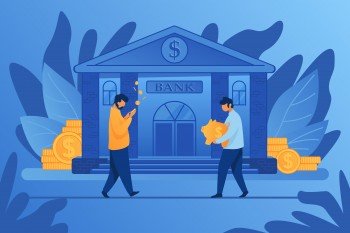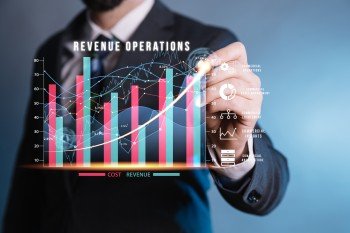
At Wealthtag Consultant, we provide a comprehensive range of loan options to meet the diverse needs of our clients. Understanding the differences between secured and unsecured loans is crucial when choosing the right financial solution for your personal or business needs. Our experienced consultants are here to guide you through these options, helping you make an informed decision that aligns with your financial goals.
Secured Loans
What Are Secured Loans?
Secured loans are loans that are backed by collateral—an asset that the borrower pledges to the lender as security for the loan. Common types of collateral include real estate, vehicles, savings accounts, or other valuable assets. If the borrower fails to repay the loan, the lender has the right to seize the collateral to recover the owed amount.
Benefits of Secured Loans:
Lower Interest Rates: Since secured loans are backed by collateral, they generally offer lower interest rates compared to unsecured loans. This can make them more affordable in the long run.
Higher Borrowing Limits: Lenders are often willing to offer higher loan amounts with secured loans because the risk of default is reduced by the collateral. This makes them ideal for large purchases, such as buying a home or financing a business expansion.
Longer Repayment Terms: Secured loans usually come with longer repayment terms, allowing borrowers to spread their payments over a more extended period, which can reduce the monthly payment burden.
Improved Approval Chances: Borrowers with lower credit scores or limited credit history may find it easier to qualify for a secured loan since the lender’s risk is mitigated by the collateral.
Unsecured Loans
What Are Unsecured Loans?
Unsecured loans are loans that do not require any collateral. The lender provides the loan based on the borrower’s creditworthiness, income, and other financial factors. Because they are not backed by assets, unsecured loans typically come with higher interest rates and stricter approval criteria.
Benefits of Unsecured Loans:
No Collateral Required: Unsecured loans do not require you to put any of your assets at risk. This can provide peace of mind, especially if you do not have valuable assets to offer as collateral.
Faster Approval Process: Since there is no need to evaluate collateral, unsecured loans often have a quicker approval process. This makes them an excellent option for those who need funds urgently.
Flexible Usage: Unsecured loans can be used for a variety of purposes, such as consolidating debt, covering emergency expenses, or funding personal projects. This flexibility allows borrowers to use the loan for whatever they need most.
Less Risk to Assets: Since no collateral is involved, there is no risk of losing a valuable asset, such as a home or car, if you are unable to repay the loan. However, failure to repay can still negatively impact your credit score.
Key Differences Between Secured and Unsecured Loans
| Feature | Secured Loans | Unsecured Loans |
|---|---|---|
| Collateral Required | Yes | No |
| Interest Rates | Generally lower due to reduced lender risk | Generally higher due to increased lender risk |
| Loan Amounts | Higher loan amounts available | Lower loan amounts typically offered |
| Approval Process | May take longer due to collateral evaluation | Faster approval process |
| Risk | Risk of losing collateral if loan is not repaid | No risk to physical assets, but credit score risk |
Which Loan is Right for You?
Choosing between a secured and unsecured loan depends on your financial situation, credit score, and specific needs:
Consider a Secured Loan if you have valuable assets and are looking for lower interest rates, higher loan amounts, or longer repayment terms.
Consider an Unsecured Loan if you need quick access to funds, prefer not to use collateral, or require a smaller loan for short-term needs.
Frequently Asked Questions (FAQs)
Q1: What are common examples of secured loans?
Common examples of secured loans include mortgages, auto loans, and home equity loans. These loans are secured against the property, vehicle, or home equity, respectively.
Q2: What are common examples of unsecured loans?
Examples of unsecured loans include personal loans, credit cards, and student loans. These loans are based on the borrower’s creditworthiness rather than collateral.
Q3: How does my credit score affect my loan options?
Your credit score significantly impacts your ability to qualify for both secured and unsecured loans. A higher credit score can help you secure better interest rates and terms. For unsecured loans, a strong credit score is particularly important, as there is no collateral to offset the lender’s risk.
Q4: Can I convert an unsecured loan into a secured loan?
In some cases, lenders may allow you to convert an unsecured loan into a secured loan, typically to reduce the interest rate or change the loan terms. This usually involves pledging an asset as collateral.
Q5: What happens if I default on a secured or unsecured loan?
If you default on a secured loan, the lender has the right to seize the collateral to recover the outstanding debt. For unsecured loans, while there is no collateral to seize, the lender can take legal action, and your credit score will be negatively affected.
Q6: Are interest rates fixed or variable for these loans?
Both secured and unsecured loans can have fixed or variable interest rates. The choice between fixed and variable rates depends on the loan type and lender policies. Our consultants can help you understand the implications of each and choose the best option for your situation.
Contact Us
Not sure which loan option is best for you? Contact Wealthtag Consultant today for a free consultation, and let our experts guide you to the perfect financial solution tailored to your needs!
Photo Gallery






